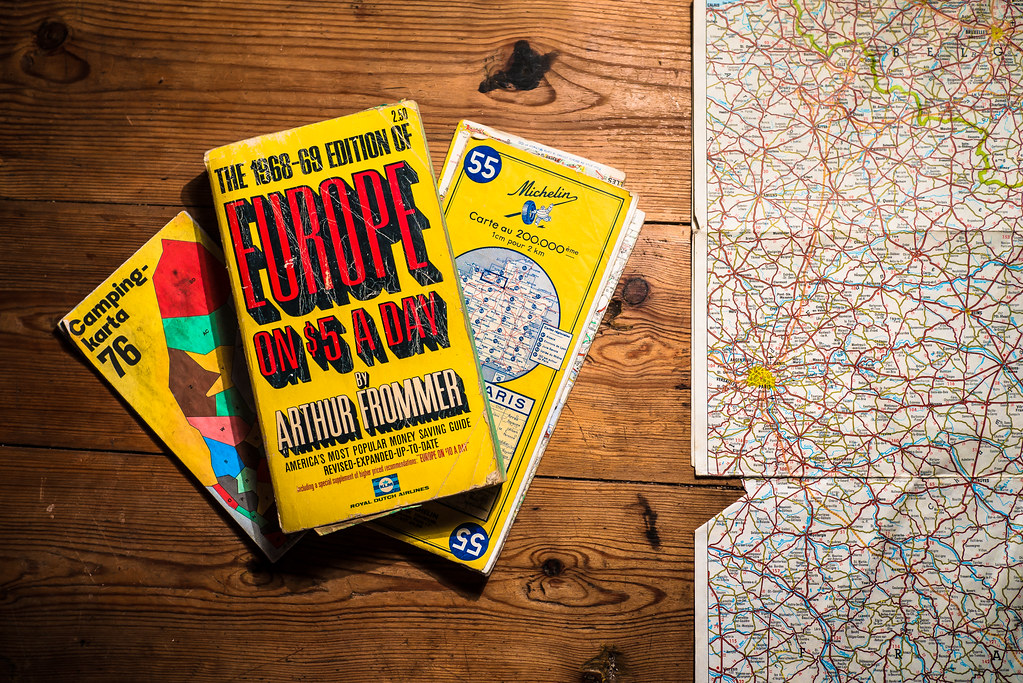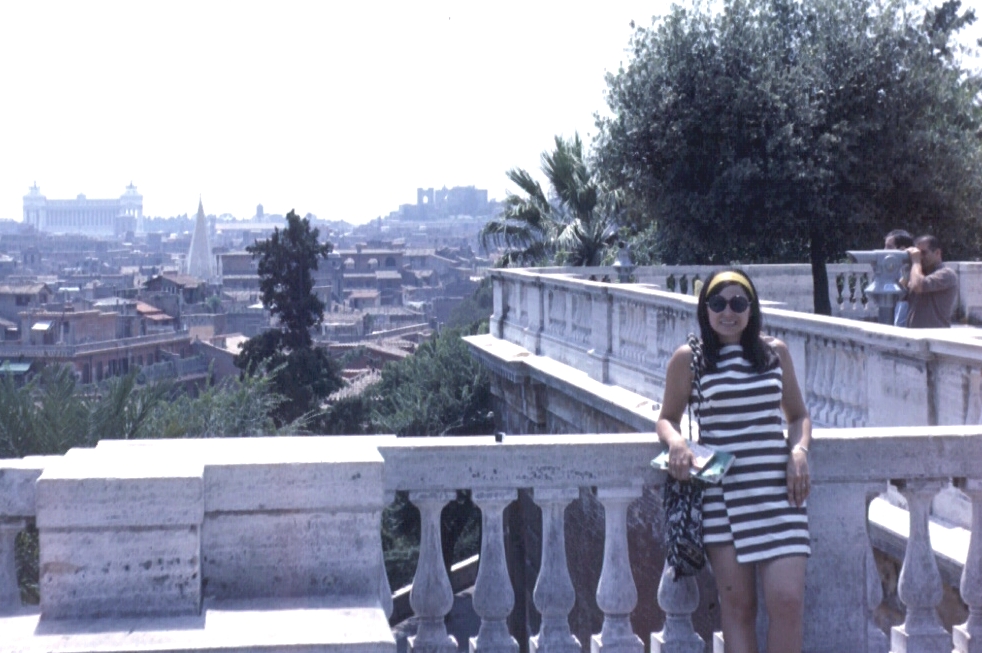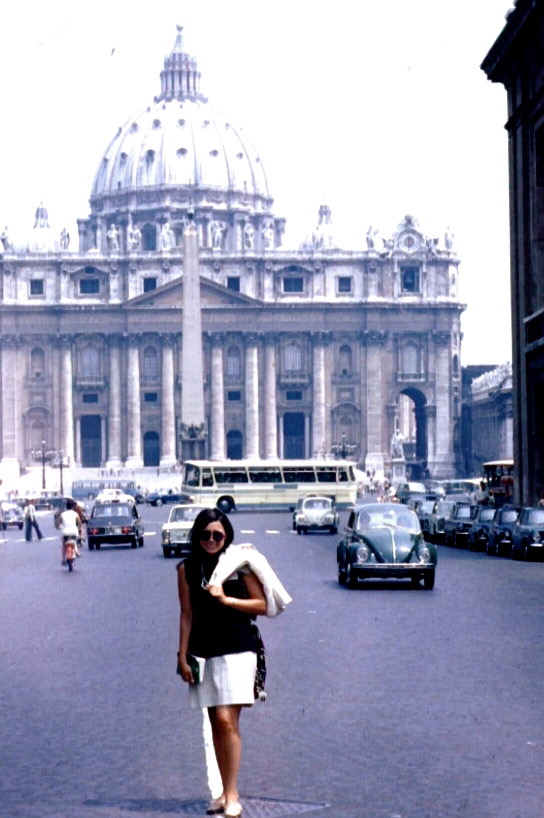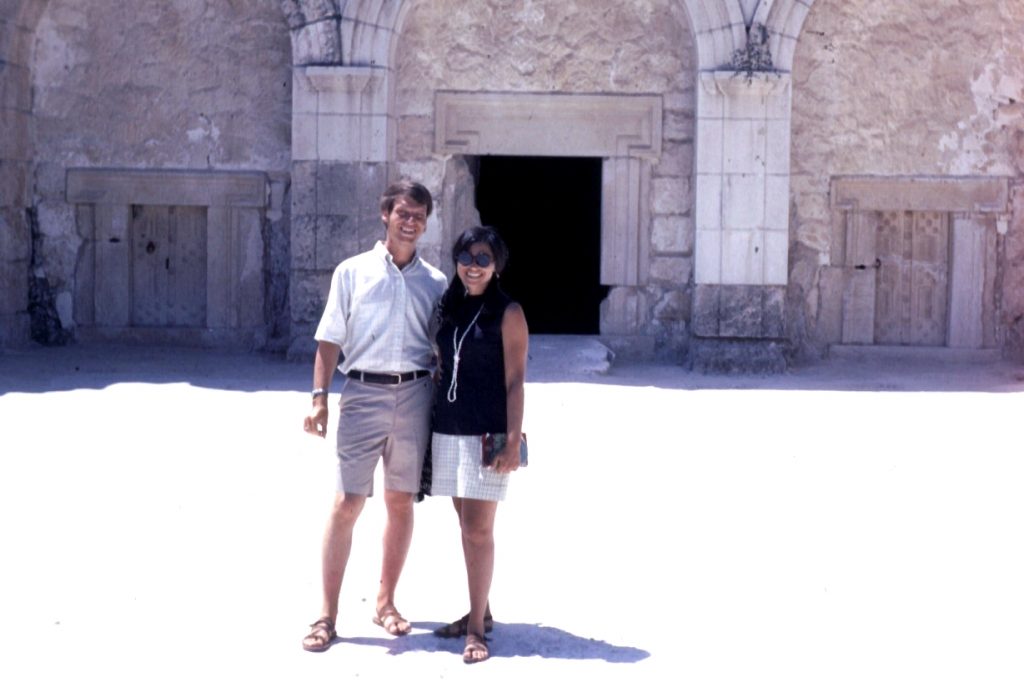
I never actually saw the moon landing on television until long after it happened. On July 20, 1969, my husband and I were on what turned out to be a once-in-a-lifetime, eight-week trip to Europe, Greece, and Israel. We had a vague notion that American astronauts had walked on the moon by looking at photos in Italian newspapers. Two days earlier, when Senator Ted Kennedy drove his car off a bridge on Chappaquiddick island, killing 28-year-old passenger Mary Jo Kopechne, we also noticed pictures on the front page of papers in Florence newsstands. Neither story seemed real to me at the time as I attempted to piece together what had happened by looking at the pictures published in the Italian press. Not being able to read Italian made it challenging. But for me, these events were forever connected.
I vividly remember the space race that was part of the Cold War with the Russians. When the USSR launched Sputnik in 1957, Americans were devasted and humiliated. Our educational system was criticized for not being able to produce scientists capable of putting a satellite into orbit first. On April 12, 1961, the Russians beat us again when cosmonaut Yuri Gagarin became the first man in space.
It was in May of 1961, when I was in high school, that our new, young president, John F. Kennedy, made his famous moon-shot speech to Congress, in which he asked for financial support for the goal of putting a man on the moon. This was the one part of the space race where we had a chance of beating the Russians. In September of 1962, JFK spoke to a large crowd at Rice Stadium in Houston Texas to drum up popular support for the Apollo program, with its goal of landing a man on the moon.
“But why, some say, the Moon? Why choose this as our goal? And they may well ask, why climb the highest mountain? Why, 35 years ago, fly the Atlantic? Why does Rice play Texas?… We choose to go to the Moon in this decade and do the other things, not because they are easy, but because they are hard; because that goal will serve to organize and measure the best of our energies and skills, because that challenge is one that we are willing to accept, one we are unwilling to postpone, and one we intend to win, and the others, too.”
A little over a year later, Kennedy was assassinated in Dallas, Texas on November 22, 1963, but the Apollo project continued partly as a memorial to JFK. Ironically, the man Kennedy defeated, Richard Nixon, was president when Neil Armstrong stepped onto the surface of the moon and proclaimed, “That’s one small step for man, one giant leap for mankind.” Trying to figure out what was happening from Florence, Italy, I may as well have been on the moon.
For some reason, the Ted Kennedy disaster was a big deal in the Italian press. I guess even back then, a juicy scandal upstaged putting the first man on the moon. Thus, these two events were linked in my mind. Chappaquiddick represented the end of having a Kennedy as president again. Bobby had been assassinated a little over a year earlier and now Teddy had disgraced himself. His story was still making headlines when the moon landing, which was his brother’s legacy, happened.
I wish I had been in America on July 20, 1969, so I could have experienced the wonder of what we had accomplished with others who viewed it live on television. Instead, my husband and I traveled to Pisa the next day and took the obligatory photo in which we appeared to be holding up the leaning tower. At the time, we were blissfully uninformed about the details of landing a man on the moon. By the time we went to Greece and Israel, it was all yesterday’s news. No one seemed to be very interested.
The Manson murders happened August 9-10 when we were in Mykonos. We also missed Woodstock, spending those days in the Jordan Valley, Sea of Galilee, Nazareth, and traveling by bus to Jerusalem. By the time we returned to earth (or Chicago) on August 26, 1969, the moon landing felt like a surreal event.
Forgive me if I will always remember the moon landing as part of the summer we got away from all things American, both the good and the ugly. The summer of 1969 was the trip of a lifetime for a young married couple. We spent $1,600 of our wedding money and actually managed to stay within Frommer’s Europe on $5 a Day budget. We celebrated our first anniversary marveling at the Chagall windows in Jerusalem. Although we missed the moon landing, we were over the moon sharing our amazing journey.
I invite you to read my book Terribly Strange and Wonderfully Real and join my Facebook community.
Boomer. Educator. Advocate. Eclectic topics: grandkids, special needs, values, aging, loss, & whatever. Author: Terribly Strange and Wonderfully Real.






Laurie, this is such an interesting perspective about having lived through that summer but in a way “missing” what those of us in the U.S. might have experienced. You have given us more of a world (Earth?) perspective, very enlightening.
I guess I learned that outside of the US, people have a different perspective on things. That was quite a summer to be away.
You missed a lot of history, Laurie, but sounds like you had a wonderful time, with a life-time of memories yourself!
The summer of 1969 was filled with so many important milestones. I can’t believe it’s been 50 years.
Great story, Laurie, and sounds like you had a fabulous trip. Funny that you linked Chappaquiddick and the moon landing because of the Italian newspapers. I was shocked to read in your story that Chappaquiddick happened only two days before the moon landing — I remember both so vividly, and would never have said that they were close in time if someone had asked me.
Guess your Woodstock story next month will be about the Jordan Valley?
What really struck me at the time was the great interest abroad in the Kennedy scandal. So I saw the moon landing, the fulfillment of JFK’s dream, as ironic coming on the heels of Teddy’s disaster. And no, my Woodstock story will not come from the Jordan Valley. It will be the tale of seeing the movie stoned with my younger brothers.
Hi Laurie,
I enjoyed reading your piece. We had similar experiences that year. I was also abroad and had a similar perspective.
Yes, I felt we had very similar feelings learning about it in another country.
Wow, Laurie. Certainly I had known about each of the specific incidents you mention but I guess I had never really pieced it all together to realize that it was in one summer. I didn’t remember JFK’s speech, but I have to laugh. Putting “why does Rice play Texas” really fits in with the other “impossibles”.
That Rice playing Texas was not in the original speech, but rather a lame attempt to engage the crowd on JFK’s part. It’s kind of strange and reminds me of how politicians should avoid improvising. Maybe that is a good lesson for the current occupant of the White House.